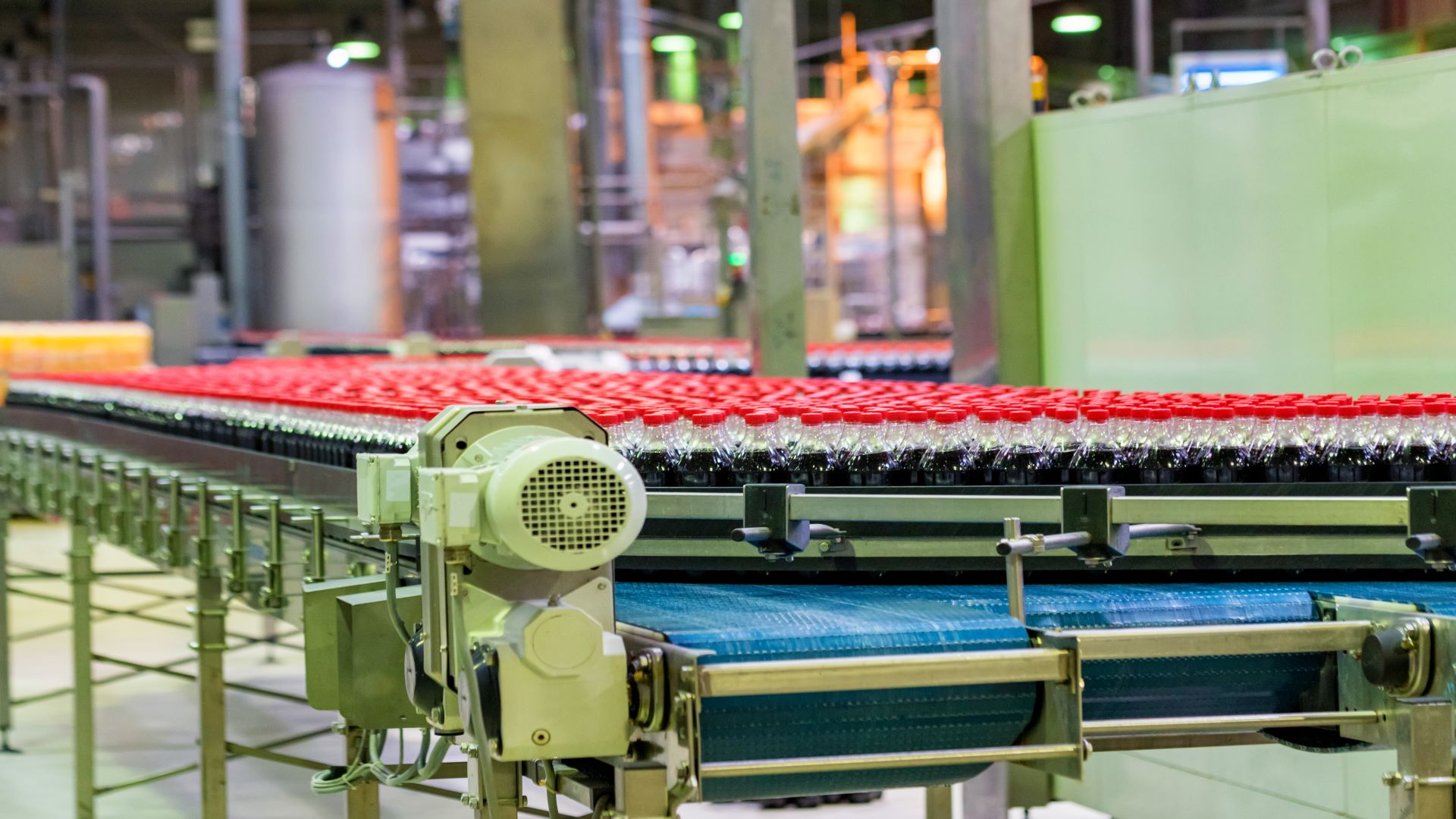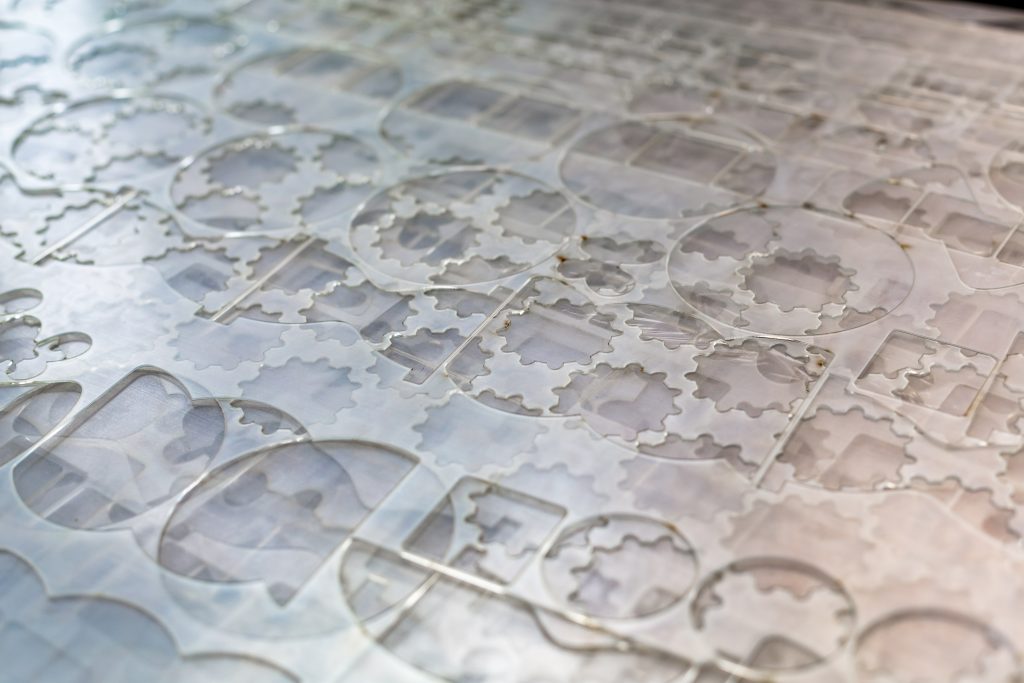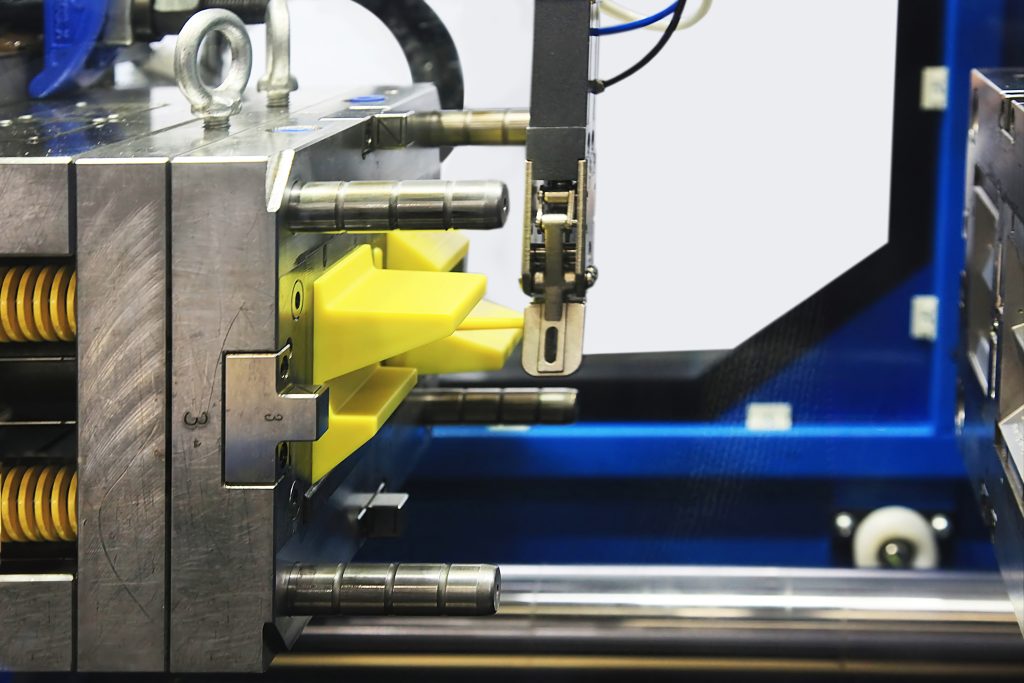
Everyone in the plastics industry is under scrutiny like never before.
Rarely does a day go by when some kind of negative press is published.
Micro plastics polluting our oceans.
Single use plastics and their impact on the environment.
Waste and scrap plastics sticking around in the ecosystem and threatening wildlife.
And then there’s legislation, such as the Plastics Packaging Tax, which is now starting to hold businesses accountable for their environmental and recycling policies.
For plastics manufacturers and processors, rising costs across every aspect of their operation is putting even more pressure on businesses.
Energy costs that are rising at exponential rates, driven, in part, by the ongoing war in Ukraine.
Supply chain pressures impacting the availability (and cost) of raw materials.
Increasing fuel costs resulting in the price of transporting and shipping finished goods rising.
The list goes on, and on, and on.
We’d all be forgiven for feeling that, as an industry, we’re constantly under attack from so many fronts.
But, you’re not alone…
Although Proximity – and our partners, Dassault and DELMIAWorks – can’t undo the damage of the past, or reduce the scrutiny, we can certainly play our part in the future.
Working together, we can help manufacturers to understand every facet of their operation and navigate the future more efficiently, effectively and, most importantly, more sustainably.
Who is Dassault?
In a nutshell, Dassault is probably one of the largest companies in Europe that you’ve never heard of.
A world leader in 3D design and engineering software, they’re probably best known for SOLIDWORKS, which is a market-leading 3D CAD design software application.
With over 300,000 enterprise customers across 11 industry sectors and in 140 countries, including Nasa, Pepsico, Imperial College London, Linpac; Airbus; Tesla; Smurfit Kappa; and Rexam.
Dassault has an enviable reputation for research & development with 41% of their 20,000 employees working in that particular area.
Sustainability is embedded within Dassault’s very DNA, both internally and for customers through the software they provide ‘to imagine, design, and test the radically new products, materials, and manufacturing processes needed in tomorrow’s more sustainable economy’’
Indeed, Dassault has been ranked at number 9 of the world’s most sustainable companies by Corporate Knights (out of nearly 7,000 public companies).
As a business, they’ve set themselves the target of becoming carbon neutral by 2040.
“Dassault Systemes provides business and people with 3DExperience universes to imagine sustainable innovations capable of harmonising product, nature and life.”
Read more about Dassault’s sustainability commitment on their website
Driving sustainability in the manufacturing sector
“To make their production process more sustainable and reduce their impact on the environment, manufacturers can leverage the latest technologies to reduce waste, cut energy use and improve efficiencies across the product lifecycle.”
Every manufacturing sector is currently undergoing a huge sustainability transformation, including:
- Decarbonising their energy sources
- Sourcing and using new sustainable raw materials
- Adopting, and in some cases, developing new production processes to minimise waste.
All this on the back of assessing the environmental impact of those choices at the earliest stages of design – and this is where Dassault suggests up to 80% of environmental impacts can be determined (and therefore minimised).
Crucially for manufacturers in the plastics sector (and other process industries), businesses can not only use SOLIDWORKS for 3D modelling and simulation, they can also harness the capabilities of DELMIAWorks manufacturing ERP system to manage the rest of their operation.
Where does Proximity fit into the equation?
Proximity is the ONLY DELMIAWorks partner in Northern Europe.
With over 570 years of combined manufacturing software experience within our team of ERP specialists, we’re well placed to apply the very best of DELMIAWorks to help you achieve your sustainability goals.
We have a proven track record for implementing manufacturing software for plastics and injection moulding manufacturers just like you.
Tackling scrap & waste with DELMIAWorks
We’ve published a considerable amount of content about the benefits of DELMIAWorks ERP software for plastics manufacturers.
As a single technology platform, DELMIAWorks gives you ‘end-to-end visibility of the complete manufacturing process. The real-time visibility of events occurring throughout the manufacturing process allows customers to eliminate waste and non-value added processes, and improve manufacturing efficiency …’
Manufacturers using DELMIAWorks have benefited from a 66% reduction in scrap (as well as a 75% reduction in downtime and 60% growth without having to increase headcount amongst many other benefits).
We had the opportunity to catch up with Tom Grigg, our Solutions Architect, for a Q&A session to explore waste and scrap management in DELMIAWorks.
What is scrap?
Scrap is effectively any non-saleable finished item that is produced from a manufacturing process.

This could be things like skeletal waste when you’re blowing material into the mould, or it could be components that are out of specification, or it could be what’s produced when you’re trying to get the configuration for your machine correct.
Maybe, for instance, there’s an issue with production and you’ve used the wrong colourant or something of that nature.
Any of these things can cause scrap.
Why is scrap such a problem?
Scrap is almost inevitable.
There are, however, ways to reduce it by managing your manufacturing processes correctly, making sure you maintain your machines effectively, et cetera, et cetera.
When we consider scrap, what is vitally important from a management and sustainability point of view is how it’s accounted for within the operation and how we analyse it and then how it’s reused in a manufacturing process.
There will always be some reason why or some imperfections that will occur naturally, especially within the plastic processing industry. The key thing here is about the fact that you can limit the amount of scrap you produce through effective monitoring of your machines and control over your production process and so on.
You can also ensure that the scrap that is being produced is being stored and utilised in the correct way in ongoing manufacturing processes in the form of regrind.
How does DELMIAWorks help us reduce scrap?

DELMIAWorks provides us with the ability to monitor our machines in real-time. By doing so, we can make sure that each of our machines is staying within the parameters that we’ve set up to make that particular part.
If it’s starting to skew out of those parameters, DELMIAWorks can ensure that everybody knows about it and can intervene at the earliest possible opportunity.
Within DELMIAWorks, we are able to map to PLC output so the programmable logic controller outputs correctly on the machine. We can take all of the operating parameters directly from the machine to understand what the optimum kind of conditions are to the output to produce the least amount of scrap.
The main thing is, obviously because our process monitoring and production monitoring is integrated into our manufacturing ERP system, we can actually correlate the timing of events with qualitative data. We can look at inspections that have occurred over a certain period of time and look at how those correlate to what the machine was doing in terms of the process monitoring, the speed of the actual cycles and so on.
We can form a really accurate view as to how we can control our manufacturing process to reduce scrap effectively.
At present, a lot of the time, the actual requirements are denoted by the type of industry and also material specifications that are provided by customers.
For instance, in pharmaceutical packaging, in kind of medical device manufacturing, you have to use 100% virgin material.
The same would go as if you’re trying to achieve a completely clear output on a product. Using non virgin material can have an impact on clear materials in terms of the kind of clarity of the product. There are certain instances where re grind can’t be used, and in those instances, that’s where it’s even more important to reduce the amount of scrap as much as possible. Although the scrap output, those processes can be reused elsewhere.
Ultimately, because we have to use 100% virgin material they are, by definition, less environmentally friendly than other processes.
What I would say is that it’s highly likely that the rules and regulations around the use of regrind in such industries may change. But that is likely to coincide with regulations around the storing and monitoring of scrap output. Because the main reason why you have to use virgin material is because of how it’s produced and stored.
Obviously there’s not as much controls in place for non virgin material.
How can DELMIAWorks help meet legislative requirements?
For example, one of the things that we’ve talked about mentioned previously is around the plastics packaging tax that’s been introduced by the government as a so-called incentive, but it’s not really an incentive. It’s more kind of like a penalty if you’re not using the correct amount of regrind material or recycled material in production.
The reason why they’ve done this is to basically discourage people from using 100% virgin material. In the big scheme of things, if the government is having to incentivise that, that just shows that companies aren’t necessarily doing that off their own back and it’s arguable that the reason why they’re not doing it is because it’s difficult to control and manage as a natural process for an organisation.
What steps do plastic manufacturers need to make to manage scrap?
Well, like I say the first step of the process in terms of looking at reducing scrap is by making sure that your production processes are as controlled and accurate as possible.
If we know all of the exact parameters, we can control all of the different elements that are all the different variables in the production process. We have greater control over them. Therefore, we can specifically reduce scrap output.
Likewise, if we previously learnt how to set a job up correctly and we’ve got a feedback loop into our data set, then when we come to a setting a machine, the next time we don’t have to run as many cycles to get the parts right, so we’re actually reducing our setup cycles.
And likewise, there’s also the other angle from almost an inspection and control side at the far end of the process. We can apply concessions from customers and perform in process inspections so you can modify certain elements of production.
All of those different factors can play a part in specifically reducing scrap.
Then the main thing with the software is then a case of, okay, we can now record the exact amount of reground material that goes into every single work order. And using full traceability within our system, we know exactly how much material went into what in what proportion. And we can trace that down to a box of finished goods to say that box of product has got 20% or 30% or 15% or whatever figure of regrind material in it.
Because all of our systems are linked and our warehouse management system has the capability of maintaining full traceability from start to finish without any kind of manual intervention.
At the end of the day. If you’ve got a site that’s got 14 injection moulding machines as an example. And those injection machines are running 24 hours a day.
If you’re running a cold runner system, for instance, you’ve got an expected amount of scrap, which will be in the form of runner and sprues at the end of a month.
If you’ve got that continuous process running. All of those runners and sprue weights will slowly add up to quite a considerable amount of scrap material. Now, if that scrap material is pure waste and nothing is done with that, then that’s just pure loss for the business. Whereas if it’s reground, then obviously it’s reducing your requirement for virgin material, which is obviously considerably more expensive than kind of reground material.
So ultimately, by making these small adjustments, by reducing scrap, by accurately recording scrap output, by controlling material movements more accurate, et cetera, ultimately we’re going to be improving our bottom line and what the business is making in terms of profit.
Within DELMIAWorks, we have an industry specific bill of manufacturers. What that allows us to do is when we’re actually planning a production process, we have got kind of made for fields for things like run and sprue weights. We’ve got fields for things like skeletal waste and the system is actually able to calculate potential skeletal waste based on various different inputs that we are kind of putting into the system.
The same goes for extrusion and so on.
So we’re able to gather a really accurate view from a planning perspective. We’re actually planning for scrap, which is anticipated because we’re able to plan for scrap.
When we’re using that in conjunction with our production monitoring system. For each cycle we run, we know how much scrap we’re producing, so we’ve always got a constant log of the exact amount of expected scrap that we are producing, obviously the scrap that are outside of those things that we’re planning for, and we might have an expected, anticipated level of scrap that we can record on the BOM. So you might have a standard, which you kind of guess at, which might be 5% scrap or 10% scrap on a particular work order.
But the main thing is that we’re able to anticipate the scrap output and plan what we’re going to do with the scrap output.
On the flip side, as we’ve got the inbuilt process monitoring we can have a live feedback loop against predefined constants.
If you’ve got a regular occurrence of rejects or bad parts or scrap being produced by a process. Then we can correlate that back to the actual production attributes that are being utilised: the barrel temperatures; engagement pressures; and so on. So that we can actually look at potentially the rate and perform root cause analysis on the actual process to understand why the scrap is higher than it should be. And then we can make any adjustments to the machine that we might need to make in order to reduce that scrap output in future.
The other side to it is that we’ve got a built in quality module which allows us to manage in process inspections. Because we can manage in process inspections, we can do a constant monitor and validate the process throughout the production, throughout the work order, throughout the job. What that allows us to do is identify if we are regularly having a scrap output or defect, or things are outside of tolerance from particular cavities that we’re using.
What would normally happen if you’ve got that occurrence is the operator would shut off that machine on the shop floor or that particular cavity and stop using it so that it doesn’t produce any more scrap. Because, ultimately, it’s just wasting material. It’s wasting virgin material. And you can end up with a load of regrind at the end of it potentially.
In DELMIAWorks, however, we can actually mirror the closing of that cavity in the software, which can be then reflected back into production scheduling.
So all in all, it’s about having the visibility, the ability to plan for scrap, the ability to then receive scrap into stock of the output, of the output of the production process, but then also allocate that scrap then regrind as another manufacturing process within the system and reallocate that scrap to future jobs or sell it, should we wish.
Please explain what you mean by ‘planning for scrap’
Of course, let me give you an example of a demo I did the other day for a prospect.
One of the things they asked us was:
“Will you be able to give us a report which tells us all of the runner and sprue weights for a week, a month, a year?”
It might be that they might want to invest in a hot runner system. The actual offset cost could be because of the scrap output and the differential between using virgin material to produce regrind.
They actually might find that it might be more cost effective to use a hot runner system, which in turn reduces scrap and has an improved impact on environmental sustainability.
Schedule a consultation to learn more about sustainable manufacturing with DELMIAWorks
Dassault, DELMIAWorks and Proximity are very much ‘in your corner’ when it comes to minimising scrap and waste in your manufacturing operation.
Book a free consultation with us today to discuss sustainability and your manufacturing requirements and find out even more ways that DELMIAWorks can help you run a more cost-efficient manufacturing operation to combat the rising costs of manufacturing.
BOOK FREE CONSULTATION >
Posted by Joe on 3rd August 2022.

